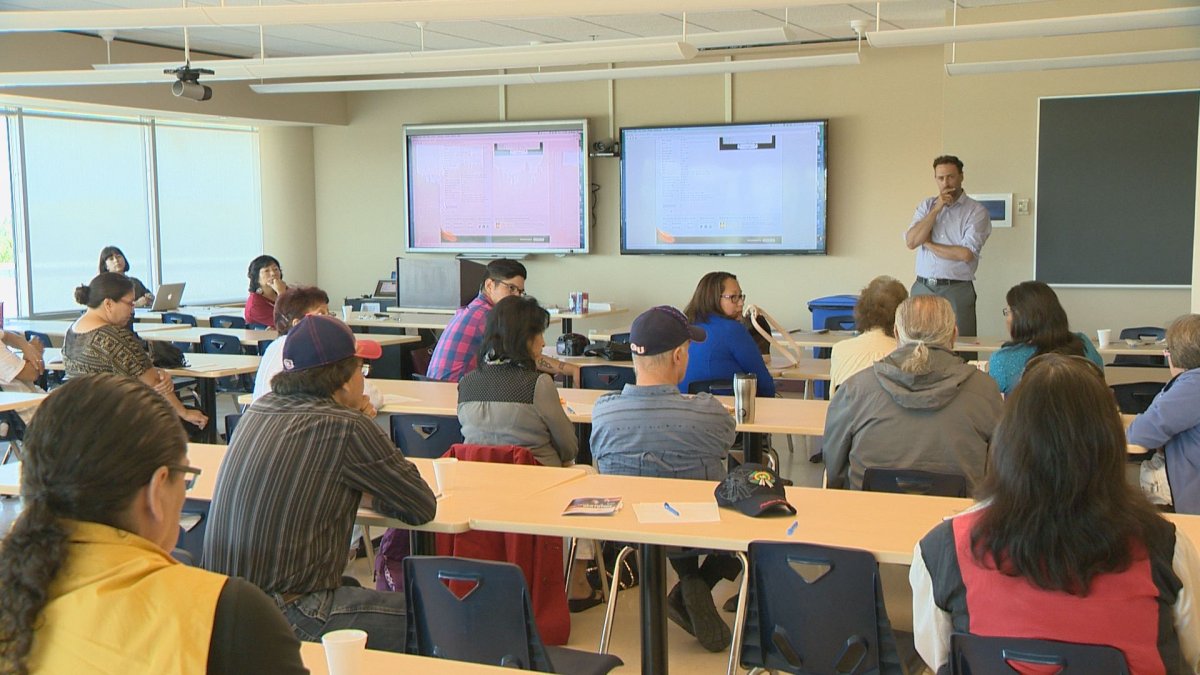REGINA – A forum for residential school survivors was held at the First Nations University of Canada on Monday to determine how much of their stories they want shared with Canadians.

The Truth and Reconciliation Commission collected hundreds of thousands of interviews and documents over the years, including student identities, their stories, and medical and police records.
Now, they want to make the records as accessible to the public as possible for public education through an online database.
However, the director of The National Centre for Truth and Reconciliation, Ry Mordan, said the centre wants to make sure the stories are shared in the most respectful way possible.
“There’s that fine line, in that we don’t want to step over the line of exposing too much sensitive information of survivors,” explained Morgan. “So, we’re just sitting down and checking in.”
Regina is the first stop in 16 across the country, and the majority of people in attendance Monday seemed to want most details shared with Canadians.
Leona Wolfe from the Muskowekwan First Nation said her mother witnessed her sister’s neck break after being pushed down the stairs while attending a residential school.
She said she understands why some people don’t want stories like that shared with the public, but adds that it’s important for the truth to be told and taught in schools.
“I just want to let the world know, ‘Hey this happened. It was real,'” she explained. “It was done to me, it was done to my children. I’m not blaming nobody. We all make choices but to me this is where it stemmed from.”
The database is expected to be launched online in November.
The National Centre for Truth and Reconciliation is asking anyone who wants to give consent for their files or stories to be told, or withdrawn, from the website to contact them here.


Comments